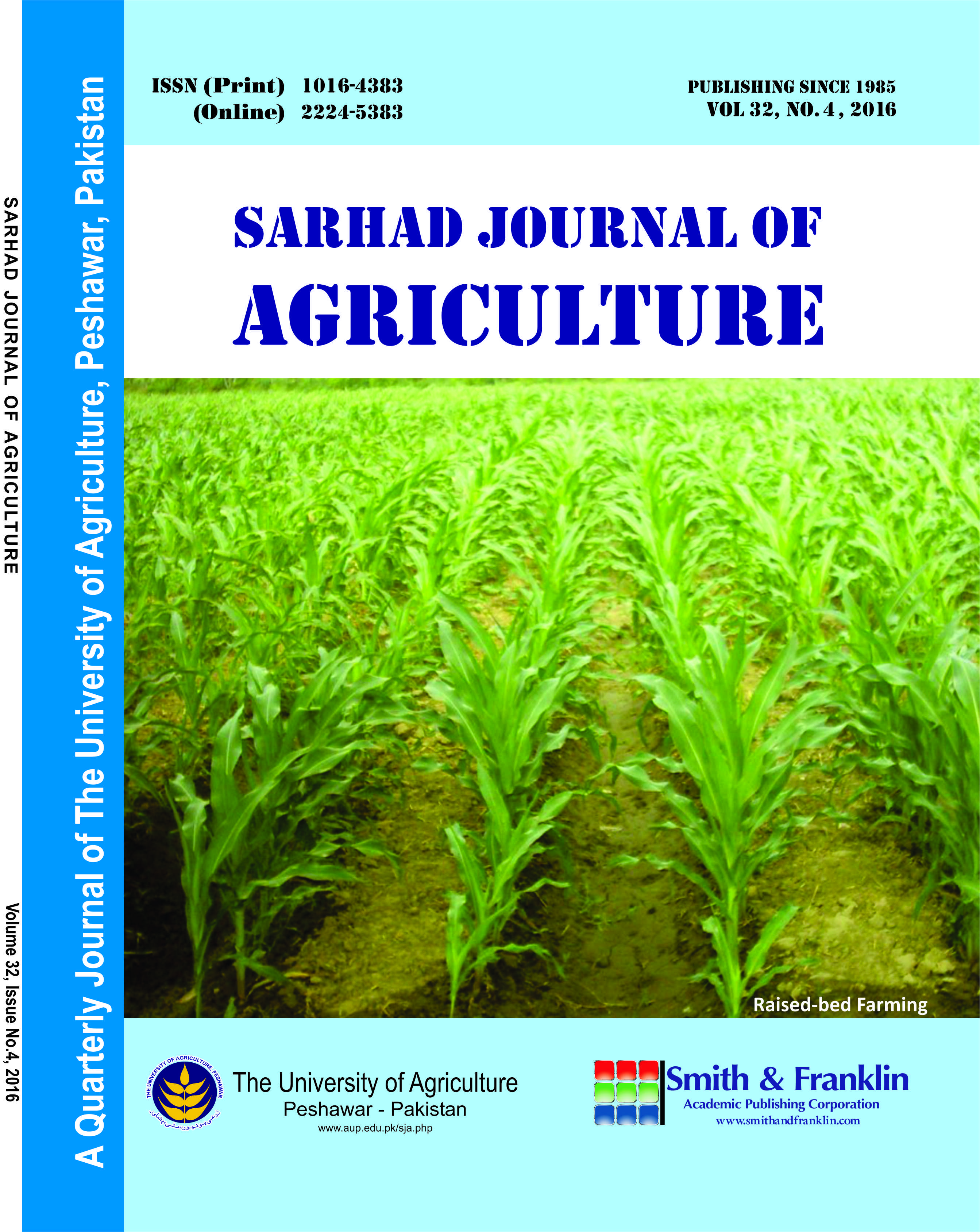Screening of Tomato (Lycopersicon esculentum Mill.) Germplasm for Chilling Stress Tolerance during Two Growing Seasons
Screening of Tomato (Lycopersicon esculentum Mill.) Germplasm for Chilling Stress Tolerance during Two Growing Seasons
Kokab Nazim1*, Asghari Bano1 and Ghulam Jellani2
ABSTRACT
Forty-five tomato (Lycopersicon esculentum Mill.) lines were evaluated for chilling tolerance using morpho-biochemical parameters. Experiment was performed in polytunnel conditions (30±2 °C) as control and open field conditions (10±2 °C) as chilling stress. After transplanting tomato plants were divided into controlled and chilling stressed. Chilling stressed set was placed in open field to apply stress while control treatment was kept in polytunnel. All the genotypes showed significant variability in cold tolerance during two growing seasons. A significant reduction in plant height, setting %age and fruits per plant was observed in sensitive genotypes. Antioxidant enzyme essay showed enhanced production of Superoxide Dismutase and Catalase coupled with higher accumulation of proline in tolerant genotypes while their production was lower in sensitive genotypes during two growing seasons under stress. All the genotypes made two major clusters. Main cluster “I” was comprised of two genotypes. Main cluster “II” was comprised of 43 genotypes. Cluster “II” was divided into A and B. “B” contained 10 genotypes while “A” was 35 genotypes. Finally, forty-five genotypes of tomato were divided into seven clusters in such a way that all the genotypes within the cluster had smaller D2 values among themselves than those belonging to different clusters. The tolerant genotypes made cluster with each other showing maximum similarity among their genetic makeup. Among all the parameters, electrolyte leakage seemed to be more authentic parameter for screening of genotypes because it shows direct effect of stress on cellular membranes. It is recommended that this method can be employed to shortlist genotypes on cost effective basis.
To share on other social networks, click on any share button. What are these?







